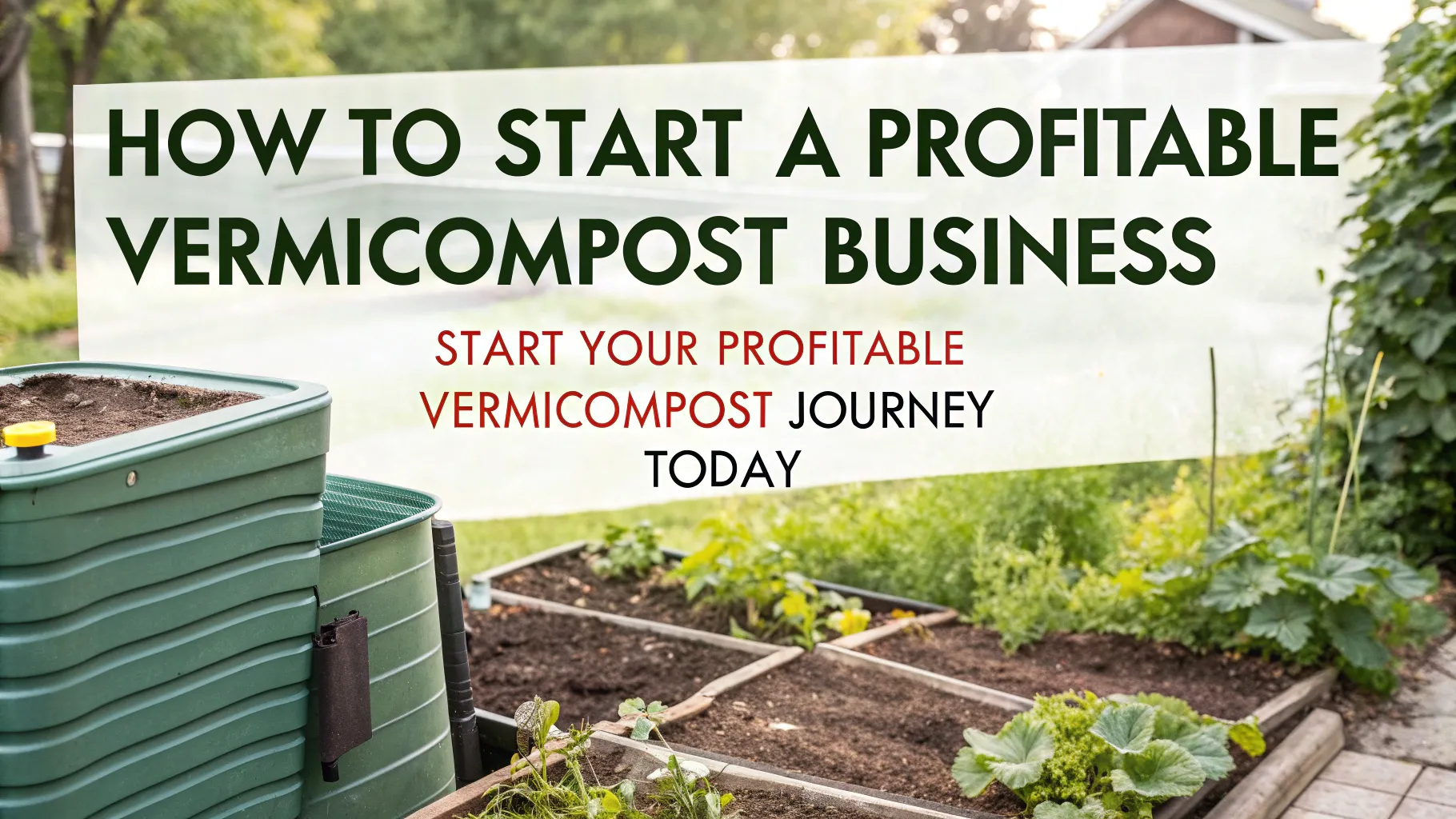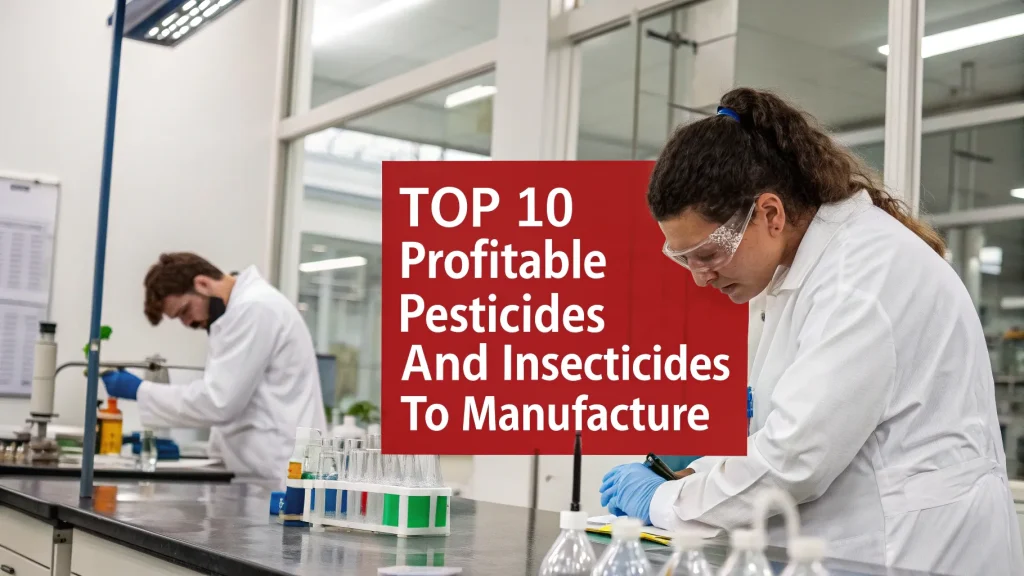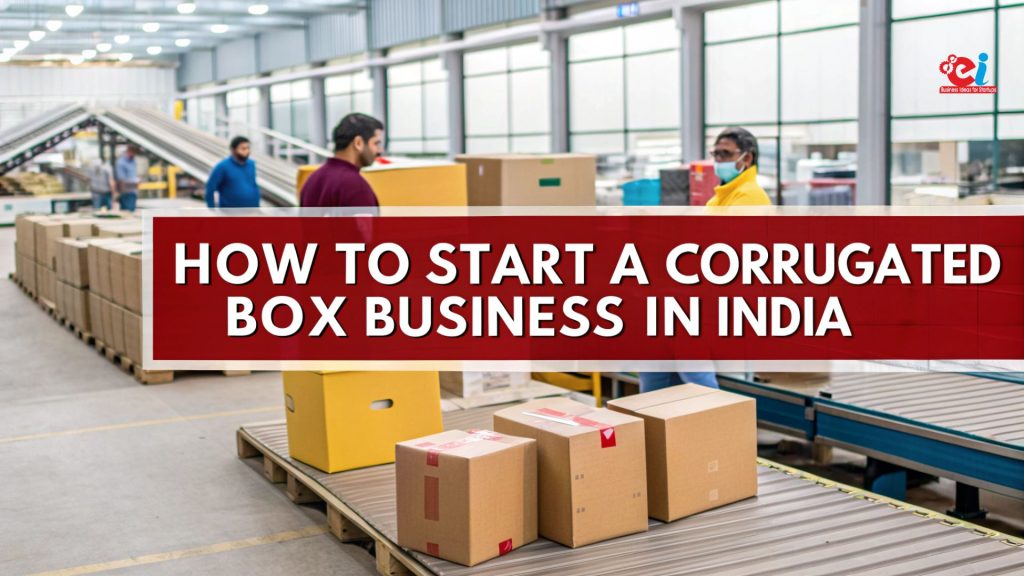The international demand for sustainable agricultural methods, soil restoration, and waste recycling has accelerated the growth of the vermicompost business. Vermi composting used to be considered a low-tech rural venture, but it’s transforming into a scalable, organized business opportunity, especially in regions like India, where organic agriculture, horticulture, and waste management are national priorities.
Entrepreneurs in the manufacturing or agri-input industry will make the most of establishing a vermi compost unit, not only for the return on investment but also because of its low entry barrier and alignment with climate-resilient practices. This guide provides critical industry trends and analyses, along with the production model, key raw materials, and their potential applications.
Why Vermi Compost Is a Profitable Business in 2025
The use of compost and vermicompost in modern agriculture has been increasing along with the demand for organic inputs. Vermicomposting not only diverts organic waste but also provides nutrient-rich compost to farmers. In contrast, it’s much more effective in comparison to chemical fertilizers, which take a lot of time to break the soil and improve its structure, aeration, and water retention.
The demand stems from three main forces:
- The organic farming boom – In India, the area of certified organic farming has increased vermi compost production tremendously over the past five years.
- Sustainable waste disposal – The use of decentralized organic waste processing systems funded by local governments is accelerating the use of vermicomposting.
- Export and horticulture sectors – Specifically, these sectors deal with high-value crops which include fruits, vegetables, and spices that need to be supplemented with premium-quality organic fertilizers to meet international standards for residues.
Other than agriculture, vermicompost is gaining popularity for use in landscaping, urban gardening, and floriculture. This creates opportunities for industrial entrepreneurs to tap into numerous niche markets and at the same time aid in the environmental recovery.
Related: How to Start a Profitable Vermicompost Business
Market Demand, Growth Forecast, and Industry Outlook
According to multiple agricultural and market intelligence reports, the Indian organic fertilizer market — of which vermi compost is a significant section — is forecasted to grow at a CAGR of 7–9% from 2025 to 2030. Furthermore, the rise in awareness in the farming community, along with government schemes under Paramparagat Krishi Vikas Yojana (PKVY) and the push towards Zero Budget Natural Farming (ZBNF), is increasing adoption on a holistic level.
The market is also witnessing:
- Growing Interest from Urban Cooperatives and Eco-Villages
- Contract Farming Companies and FPOs (Farmer Producer Organizations)
- Shifting into Export-Oriented Horticulture and Spice Farms that are going organic
Small-scale units in urban and peri-urban areas are selling packaged vermicompost to retail outlets for balcony gardens, nurseries, and organic food brands. These add-on segments are further diversifying the revenue streams for the producers.
Why is Vermi Composting a Feasible Manufacturing Business
Vermi composting is biologically driven, modular, and less complex. Unlike chemical fertilizers, which need heavy machinery, composting only needs organic material, composting organic waste, and certain species of worms, specifically Eisenia fetida or Eudrilus eugeniae.
Both the compost feedstock and the market for vermicompost are scalable. The venture can start from a small modular setup of 1-2 acres, which can then be upgraded to a semi-automated production unit that has the capability to dry, sieve, and package. Continued agricultural waste supply (kitchen, garden, dairy, etc.) guarantees consistent production in output.
This type of business also follows the principles of the circular economy by transforming waste into value-added resources, alleviating landfill burdens, and fostering sustainable agronomy. In agro-industrial areas, poultry, dairy, food processing, and even sugar mills offer ready streams of byproducts, which can be utilized as raw materials, thus lowering procurement expenses and improving margins.
Manufacturing Process: Waste Transformation to Nutrient-Rich Compost
Nutrient-rich humus can be obtained through the vermi composting process which involves the cultivation of earthworms on organic waste, which increases the value of the waste.
1. Pre-Treatment of Waste
Cow dung, vegetable peels, and residue from crops, as well as leaves, are pre-processed by gathering and partially decomposed for around 10-15 days. This pre-emptive step yields compost that worms can consume.
2. Bedding and Layering
Dried leaves and sand are also called coarse substrates and are important for enhancing the drainage as well as the aeration of the compost. Thus, a layer of this material is added as the base. On top of this, layer the pre-treated waste and earthworms.
3. Worm Processing and Composting
To begin with, worms and their castings make up the main vermicompost feed dunked in 45–60 day cycles. They go through an aerobic stretching process that maintains a 60–70% moisture level.
4. Compost Extraction and Sieving
When the compost reaches the desired dark granular structure, the earthworms can be extracted and reused through light or sieving techniques. Any lumps that have formed will be removed in the sieving step, and the finished product will be kept until packaging.
5. Product Packaging and Holding
The finished product can be kept in bulk or 5-25kg bags until sent to retail stores and garden centers. Marking and labeling have a big impact on B2B customers.
An additional value product can be made from the compost, called vermi-wash. This is a liquid extract enriched with bio-enzymes.
Related: How to Start a Profitable Vermicompost Business
Essential Features and Raw Material Sources
Effectiveness can be improved by finding a place with direct access to composting agriculture or livestock zones.
- Consistent streams of organic waste products
- Labor and capital for manual sorting
- Effective road access for the inbound and outbound materials
Valuable sources of raw materials may include:
- Dairy cow dung
- Organic materials from fruit and veggie mandis
- Poultry and agro-waste from sugarcane fields
- Sludge from food processing facilities (post-removal of non-organics)
Key Operational and Regulatory Challenges and Solutions
Focusing on the system failures of a specific vermi compost business can lead to a variety of opportunities. However, entrepreneurs should be aware of certain operational and regulatory hurdles.
- Inefficient Management of Waste Quality: However, churning organic waste may lead to stagnation. Therefore, concentrating on a specific organic material and enforcing contracts may guarantee dependability.
- Ant and Fly Protection: Moreover, ant and fly control is a crucial aspect of protecting germ-free vermi beds. In addition, controlling the ambient environment, along with regular monitoring and proper preparation of the beds, maintains the hygiene expected.
- Licensing and Compliance: Depending on the operational scale and market, retailing compost may require certifications under the FCO (Fertilizer Control Order). Consequently, early compliance leads to swift market access.
- Product Differentiation: Due to the presence of many smaller players, the customers need to be educated (especially in urban areas) on consistent quality.
The Vermi Composting Business Is Suited For:
- Mexican agri-preneurs in search of more sustainable and input-based projects
- Rural entrepreneurs with access to cow dung and agro waste, along with inexpensive land
- FPOs or cooperatives looking to establish units that generate income
- Established agriculture input companies are looking to branch out into organic products
- Startups promoting eco-friendly rooftop and balcony permaculture gardening
With the right technical setup and market connections, this business has the potential to be environmentally impactful and profitable.
Increasing Scope and Value Multiplication
Once the base unit for composting is set, the entrepreneurs can expand vertically into the following areas:
- Packaging for retail sales to home and urban gardeners
- Production of liquid vermiwash and bio-fertilizers
- Partnerships with organic food companies for private labeling
- Community training programs for vermi composting and CSR partnerships
- White label products for agri brands and e-commerce sites
Using digital marketing and direct E-commerce channels, as well as the education outreach on organic compost, brands can improve visibility and sales.
For more information, check out this video
How NPCS Can Help You Launch a Vermi Compost Business
If you’re planning to enter the organic input industry and need professional support, Niir Project Consultancy Services (NPCS) offers specialized assistance.
- NPCS prepares Market Survey cum Detailed Techno Economic Feasibility Reports tailored to your region and business model.
- Their reports include manufacturing process details, raw material specifications, plant layout planning, and technical guidance.
- NPCS also helps entrepreneurs evaluate the feasibility of setting up new businesses, ensuring well-informed decision-making and regulatory compliance.
Which business to start? How to choose a business idea?
Final Thoughts
Moreover, as global agriculture pivots toward sustainability and climate resilience, the vermi compost industry offers a rare opportunity one that’s affordable to start, scalable in operations, and highly aligned with environmental stewardship. Entrepreneurs with a long-term vision can build a thriving business that not only earns profit but also enriches the soil, reduces waste, and supports cleaner ecosystems.
Whether you’re an industrial consultant, agri-startup founder, or a rural entrepreneur with access to organic waste, this is the right time to capitalize on the growing demand for natural fertilizers.






